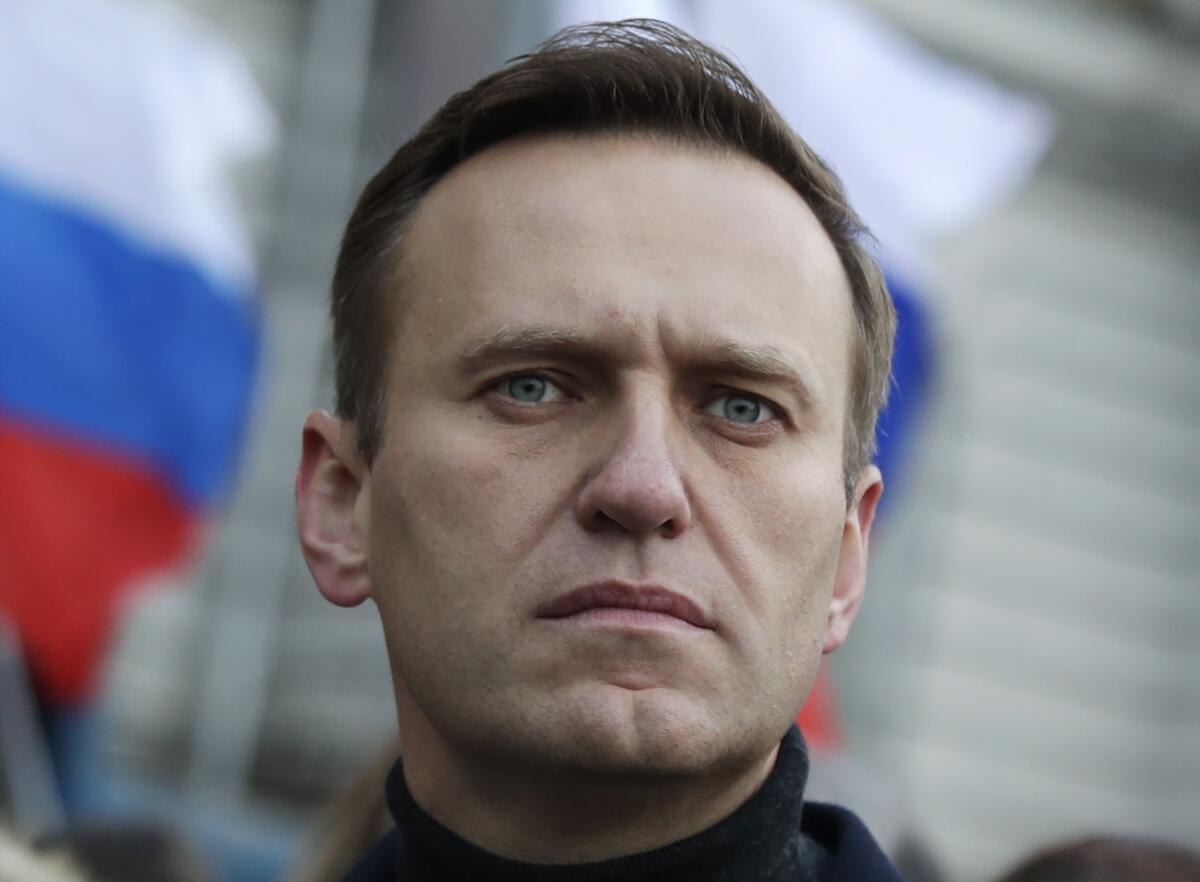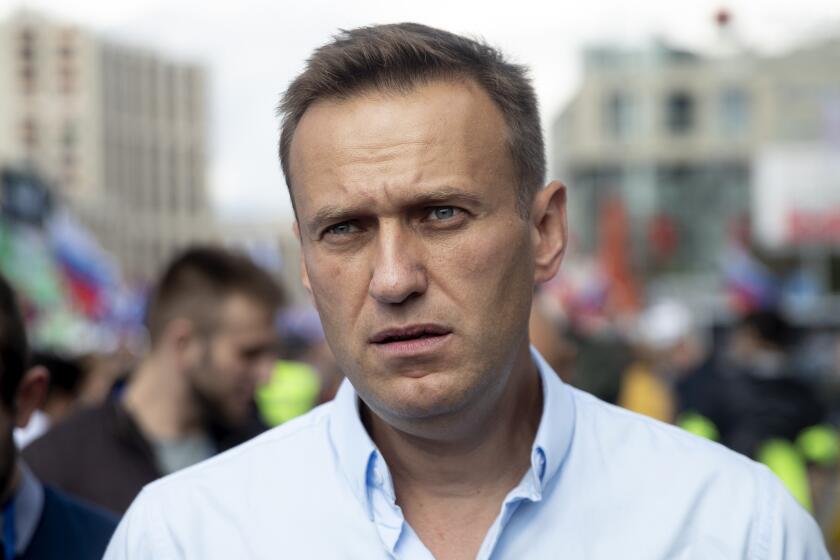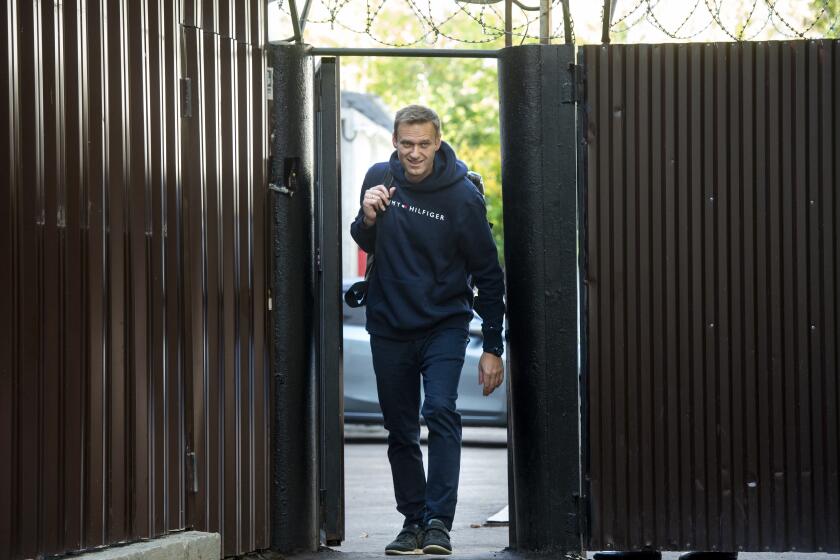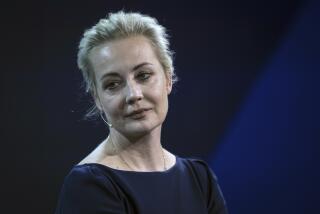Russia announces preliminary probe into Alexei Navalny’s sudden illness

MOSCOW — Amid growing pressure from Western officials, Russian police Thursday announced a preliminary probe into the circumstances of the sudden illness of opposition politician Alexei Navalny, who fell into a coma last week following a suspected poisoning.
According to a statement released Thursday by a Siberian branch of Russia’s Interior Ministry, investigators in Siberia have been working on “establishing all the circumstances of the incident,” conducting forensic studies and collecting items “that may have probative value.”
Navalny, an opposition politician and corruption investigator who is one of Russian President Vladimir Putin’s most outspoken critics, fell ill on a flight back to Moscow from Siberia last Thursday and was taken to a hospital in the Siberian city of Omsk after the plane made an emergency landing.
Over the weekend, he was transferred to the Charite hospital in Berlin, where doctors found indications of toxic “cholinesterase inhibitors” in his system. The hospital has not yet identified a specific substance that could have caused Navalny’s illness.
Found in some drugs, pesticides and chemical nerve agents, cholinesterase inhibitors act by blocking the breakdown of a key chemical in the body, acetycholine, which transmits signals between nerve cells.
His allies insist he was deliberately poisoned and say the Kremlin was behind it, accusations that officials dismissed as “empty noise.”
Past example shows that falling afoul of Putin can portend poison peril
Navalny’s team submitted a request to Russia’s Investigative Committee last week, demanding that authorities launch a criminal probe into a possible attempt on the life of a public figure, but officials appeared reluctant to start an investigation. Kremlin spokesman Dmitry Peskov said Monday he saw no grounds for a criminal case until the cause of the politician’s condition was fully established.
The Interior Ministry’s statement Thursday didn’t specify when the preliminary probe — an inquiry to determine whether a criminal investigation is warranted — started. Peskov said it was launched “in the first days” after Navalny fell ill and is routine police work “always carried out in cases like this.”
Peskov insisted that the need for a full criminal investigation has still not been established.
“Nothing has changed in that regard. We still, unfortunately, don’t understand what caused the condition the patient is in,” he told reporters.
Russian opposition leader Alexei Navalny has been released after spending a month in jail for calling for an unsanctioned protest.
Navalny ally Ivan Zhdanov said that the preliminary probe should have been launched Aug. 20, right after the politician’s team submitted a request. “Open a criminal case,” Zhdanov said in a tweet Thursday.
The announcement of the inquiry comes after multiple Western and European officials — including German Chancellor Angela Merkel, British Prime Minister Boris Johnson and U.S. Secretary of State Michael R. Pompeo — called upon Russia to conduct a full and transparent investigation into Navalny’s condition.
On Wednesday night, the politician’s illness was discussed in a phone conversation between Putin and Italian Prime Minister Giuseppe Conte.
According to the Kremlin’s readout of the call, Putin pointed out that “premature and unfounded accusations” were unacceptable and underscored Russia’s “interest in a thorough and objective investigation of all the circumstances of the incident.”
German Foreign Minister Heiko Maas on Thursday once again urged Moscow to investigate Navalny’s illness.
“We still expect of Moscow that a contribution be made from there to things being cleared up,” Maas said in Berlin ahead of a meeting with his counterparts from other European Union countries. “Otherwise, conjecture and speculation will remain that certainly won’t improve relations between Germany and Russia, and also relations between the EU and Russia, but will continue to weigh on them.”
More to Read
Sign up for Essential California
The most important California stories and recommendations in your inbox every morning.
You may occasionally receive promotional content from the Los Angeles Times.












